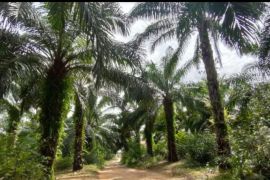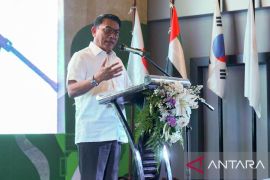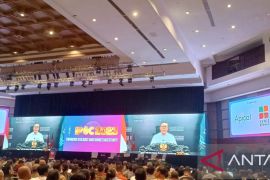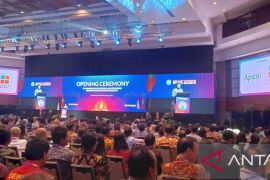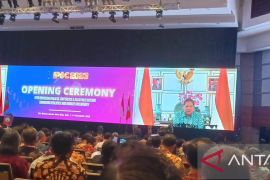The chairperson of the Indonesia Palm Oil Committee (KMSI), Rosediana Soeharto, questioned the Notice of Data Availability of the Environmental Protection Agency's (NODA EPA) claims that palm oil produced in Indonesia fails to meet the 20 per cent standard green house gas reduction limit and therefore is not qualified as a renewable energy source.
He said this during the 3rd International Conference on Oil Palm and Environment (ICOPE) on Thursday.
Palm oil only carries 17 per cent green house gas reduction.
"The model (of study) used is not correct and does not match with that used by the European Union and creates uncertainty," Rosediana said.
In view of that, she said, the Indonesian government would submit scientific data and evidence showing that palm oil green house gas reduction standard is more than 40 per cent.
"Twenty-five people from government insitutions, associations, research institutions and academics are currently preparing a report against the NODA EPA claims and a deadline to submit it has been extended until March 28, 2012," she said.
She said Indonesia must strongly protest the first NODA EPA before it is passed into law.
"As a major palm oil producer, Indonesia is concerned about the US policy as the potential biofuel market in that country is huge," she said, and added that the potential biofuel export to the US could reach between two to three million tonnes a year with the projected US biofuel demand from various kinds of vegetable oil reaching 400 billion gallons by 2022.
PT Sinar Mas` director of agribusiness and food, Tony Liwang, said he hoped there should only be one international standard and certification to comply with, so that it would not confuse palm oil businessmen, since many of them are farmers.
"One of our plants, for example, has RSPO (roundtable sustainable palm oil) and ISCC (international sustainability and carbon certification) certificates," he said.
He said the certificates were needed to enter the European markets. He admitted that foreign businessmen would be willing to buy certified palm oil at a higher price compared to crude palm oil that has not been certified.
The US embassy represented by Hugo Yon, deputy consul for economic affairs, could not confirm when the law on renewable energy would be enacted.
"We could not tell how long it would take. It all depends upon public opinion," he said.
After the first NODA the US government plans to issue the second NODA after reviewing public opinion on earlier proposals. Only then would the policy be drafted, he said.
At the conference, a long-distance dialogue was held between the panelists and the Director of Climate and Economic Modelling Center from EPA, Sharyn Lie and EPA analyst Aaron Levy, whose research had drawn protests from palm oil producers, especially in Indonesia and Malaysia.(*)
Editor: Heru Purwanto
Copyright © ANTARA 2012





